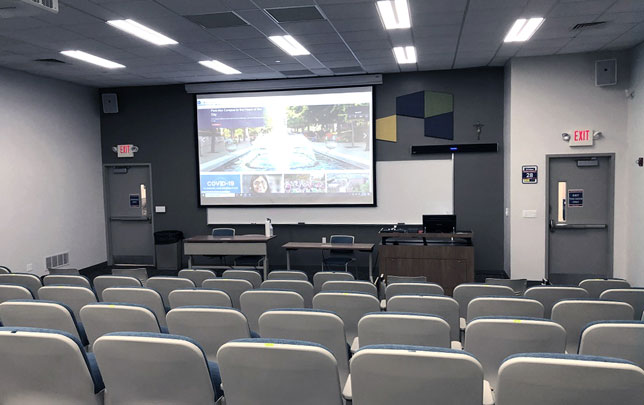Duquesne University Outfits Classrooms with Audio Conferencing Tech

Hybrid classroom at Duquesne University
Pennsylvania's Duquesne University has installed audio conferencing systems in more than 40 classrooms to support its shift to the hybrid learning model, in which some students attend class on-campus while others participate remotely. The institution chose Nureva's HDL300 audio conferencing solution for the rollout, a wall-mounted system designed for mid-size spaces, and plans to install the tech campuswide. It worked with AV integrator SMARTSolution Technologies for the project.
Features of the Nureva system include:
- Microphone Mist technology, which uses 8,192 virtual microphones to provide full-room microphone coverage;
- Position-based gain control, designed to optimize each sound signal individually; and
- Continuous autocalibration, allowing the system to handle classroom configuration changes automatically.
Thanks to the technology, instructors can move around the classroom without the need for lapel or podium microphones, while remote students get the audio experience needed to feel engaged in the class, according to a news announcement.
"We are thrilled that our audio systems are helping remote students at Duquesne receive the same quality of education as the in-classroom students receive,"commented Nancy Knowlton, Nureva's CEO, in a statement. "This is a new way of teaching and learning for most universities, and we are delighted that Duquesne continues to deploy our systems across the university."
About the Author
Rhea Kelly is editor in chief for Campus Technology, THE Journal, and Spaces4Learning. She can be reached at [email protected].